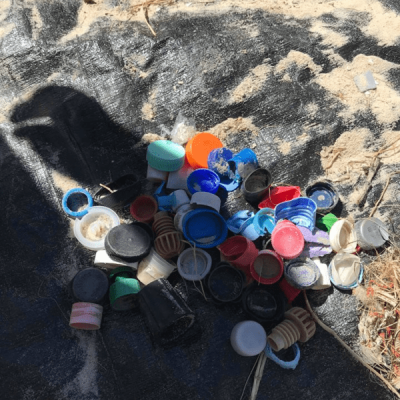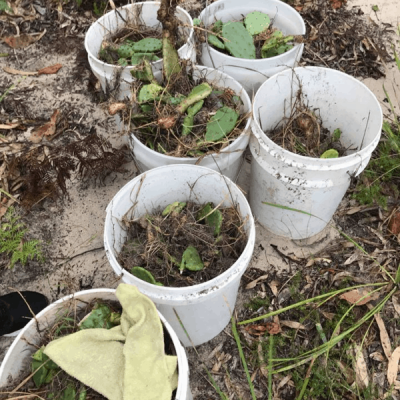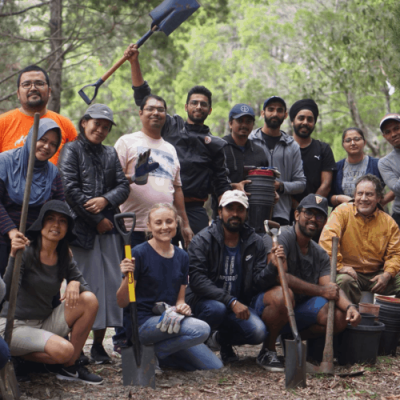In response to escalating weed infestations across Moreton island, an enthusiastic team of Griffith University student volunteers from Master of Environment and Master of Urban and Environmental Planning, camped out at Comboyuro Point on the slightly wet weekend of 30th-1st April, 2019. This was the fifth return to Bulwer since initiation of the weed management program in 2017. Students participated in a range of volunteer activities as a contribution towards their professional development portfolio.
Prickly Pear Removal
As part of the field work we completed on Moreton Island, we completed a number of hours of volunteering involving removal of prickly pear from around the Tangalooma airstrip. This was a brilliant opportunity to help with controlling a significant noxious weed in Queensland, and ensuring it does not damage the fragile ecosystems on Moreton Island. What was probably the most valuable element of the experience, however, was being able to work alongside our classmates and teaching staff, and get to know them better through the process. This was particularly valuable considering most of our classmates are international students and so being able to spend time over on Moreton together. It was also fantastic to be able to participate in the field work because practical, hands-on learning is certainly extremely important in terms of solidifying the theory covered in our lectures. And being able to do so while experiencing and ensuring that Moreton Island remains a beautiful and healthy part of South East Queensland only adds value to this.
Asparagus Fern Removal & Revegetation
Thanks to continuing weed management efforts, re-establishment of the highly invasive Asparagus fern has been successfully prevented within the vacant state land, near Castaways in Bulwer, allowing our team to easily dig out juvenile specimens and begin revegetation. The team worked tirelessly to plant over 150 specimens of native flora which were kindly provided by the North Point nursery. This was a great opportunity for international students to get exposure to some important native species that contribute to the complex and fragile ecology of Moreton Island National Park. Students found this activity enjoyable and rewarding, having the opportunity to participate in the first stages of revegetation and help promote the natural aesthetic of the township.
Litter Pick-up
Between weeding and revegetation, a leisurely beach litter pick-up activity from the campground to Bulwer helped students unwind and relax. The team collected various netting, plastic bottles and discarded camping equipment amongst the dunes, to be used as data collection towards an honours research project.
Special thanks to Dr Peter Davey for providing free accommodation at Comboyuro Point campground and discounted student ferry fares care of Moreton Island Adventures.
Written by: Lewis Arnold and Kim Savage




